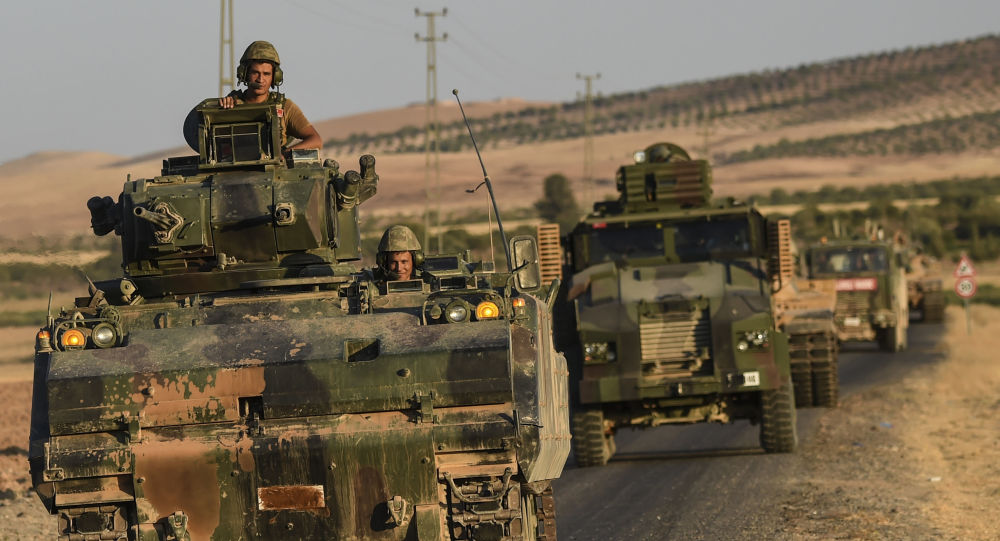For the past few months, Turkey’s agenda has been dominated by issues related to the reopening of Hagia Sophia as a mosque, the debate on the Istanbul Convention related to violence against women, strict restrictions on social media, and talks over alliances in the domestic political sphere. The currency crises and difficulties in the economic sphere, compounded by the outbreak of the coronavirus disease (COVID-19), are also among the main issues figuring in daily conversations on the streets of Turkey.
While in the domestic sphere there is a laundry list of issues that need addressing, much has happened with regard to foreign policy as well. Almost every day, there is a new development in the Eastern Mediterranean that causes tension to escalate between the two warring parties, and Turkey is one of the main actors. The country has also become involved in the dispute between Azerbaijan and Armenia. Taking the repercussions of the latest escalation seriously, Ankara threw its support to Baku, falling out with its partner in Syria, namely Russia.
Along with the Syrian file, a very tough time seems to await Turkey’s foreign policymakers who need to be ready to tackle the forthcoming challenges on all fronts, ranging from Syria to Libya, the Eastern Mediterranean to Caucasia. For years, Syria has been the main testing ground for Turkish foreign policy. It was the issue on which the government garnered votes, as well that which inspired some of the harshest criticisms against it.
Syria’s importance stretches beyond its borders and, consequently, the crisis represents grave problems for Turkey and for many other involved actors. For Iran’s foes, the war in Syria has become a main battleground for their existential struggle. For the EU, the war, in basic terms, means refugees and the threat of increased migration to its shores. For Turkey, the instability of its immediate neighbor is a direct threat to its own domestic stability. Turkish interests in Syria have therefore become focused on the areas along its border and are no longer concerned with the future of the regime in Damascus. This has been Ankara's main policy since late 2016. For the US, the war has become the litmus test for its relations with regional allies. The resolution of this war would thus have a domino effect, influencing several hot points in the region and beyond. While all eyes have been fixed on tensions in the Eastern Mediterranean, some significant developments have taken place in the Syrian theater. Let us take a closer look at them.
According to the Syrian Observatory for Human Rights, the Turkish army has established a new base in the area of Jabal Al-Akrad, near the northern Syrian city of Latakia. Although the exact number of Turkish bases in Syria is unknown, this new base is seen as a move to limit the Syrian army’s room for maneuvering toward the district around Latakia. On Wednesday, it was reported that Turkish military reinforcements had also entered Syria’s embattled northwestern Idlib province. Turkish President Recep Tayyip Erdogan reiterated recently that Turkish forces would stay in Syria until peace is restored. “Until the Syrian people are free, peaceful and safe, we will remain in this country,” Erdogan said during a speech on Tuesday, according to reports.
Turkey, while complying with the delicate truce signed with Russia, continues to push back against regime advances and defend its current positions. While it carries out joint patrols with the Russian army, it also stands firm against the Syrian Democratic Forces (SDF).
Another development has been the oil deal signed between a US-based company and the Kurdish-led Autonomous Administration of North and East Syria. Following talks between US Sen. Lindsey Graham and SDF head Mazlum Kobane, Turkey condemned the deal and said it deeply regretted the US support, which it said disregards international law and violates territorial integrity. Syria has also joined Turkey in condemning the deal, calling it illegal and accusing it of being a way to steal Syria’s crude.
The results of the upcoming presidential elections in the US will be a very significant factor in shaping Turkey’s policies in Syria and the wider region.Needless to say, the results of the upcoming presidential elections in the US will be a very significant factor in shaping Turkey’s policies in Syria and the wider region. A defeat for Donald Trump would mean the start of a new episode in Turkish-American ties, not necessarily positive given Joe Biden’s approach to Turkey’s policies in the region. This aside — as well as his statements over Russian S-400 missiles, the Eastern Mediterranean or concerns about freedom of the press and human rights in Turkey — he is against Turkey’s military operations in Syria and has stated that the YPG/PKK were betrayed by the US.Sinem Cengiz
In a nutshell, it is Syria that is the main source of all the region's problems and it is Syria, again, where the panacea for lingering regional instability might be found. Overshadowed by the conflict in Libya and the tension in the Eastern Mediterranean, the puzzling developments in Syria are where all eyes should be fixed. How Turkey responds to these developments will determine its actions in other areas as well.
- Sinem Cengiz is a Turkish political analyst who specializes in Turkey’s relations with the Middle East. Twitter: @SinemCngz
- arab.news









 Home
Home Politics
Politics











